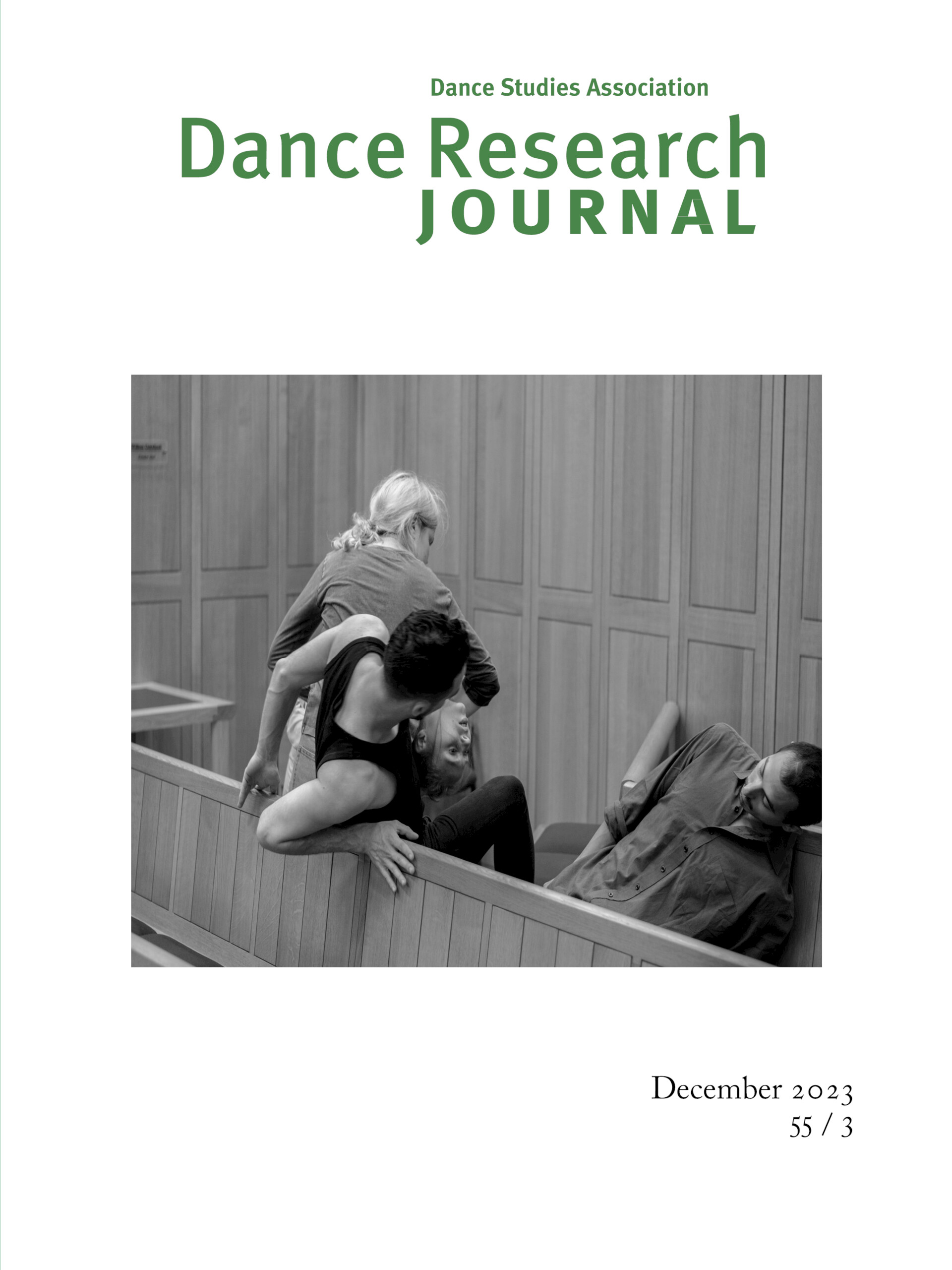Dance Research JournalThe Dance Research Journal (DRJ) is a peer-reviewed premiere publication for dance scholarship of international reach and includes articles, book reviews, and lists books received. DRJ is published three times per year by Cambridge University Press. Published articles address dance history, theory, politics, ethnography, and intersections with cultural, gender, critical race, and diasporic studies among others. DRJ is committed to cross-disciplinary research with a dance perspective. Contributions for publication consideration are open to both members and nonmembers of DSA, and will be accepted any time. Dance Research Journal access is free for DSA members, who may access issues online by signing into the DSA member portal and clicking "DSA Member Access" on the far right of the menu bar.Access DRJ through Cambridge University Press HERE. View on Project Muse (2008-). View on JSTOR (1974-2011). SEE SPECIAL DIGITAL DRJ COLLECTION (open access through July 2024) - Cartographies of Movementcurated by DRJ Editorial Fellows Sariel Golomb, Jennifer Ligaya Senecal, and Emily Wieder Most Recent IssueVolume 55 - Issue 3 - December 2023 (excerpt from Editors' Note) This DRJ issue converges around the theme of the trace and its role in the scholarly research process. Our interdisciplinary offerings here situate dance as the center of inquiry and discovery. Each of the five revelatory articles illuminates the novel application of a basic research method in humanistic studies, which is discovering a pattern and identifying a trace—the means of tracking that pattern over sets of data and/or the materials under investigation. In short, the articles we have assembled offer striking examples of how identifying something to trace can connect scholarly practice with evidentiary praxis. All the articles in this issue tangle with precedents, conventions, and prevailing notions—in short, cultural work and workings that hold structural and cognitive (intellectual) systems in place. Our authors organize their research around identifying and tracking such stabilizing factors as a way of unveiling contradictions and entanglements. (Rebekah J. Kowal) DRJ Special Issue Procedures & Guidelines DRJ Conflict of Interest Policy Rebekah Kowal, Executive Co-Editor To see the full Editorial Board, visit the Leadership & Management page. |

